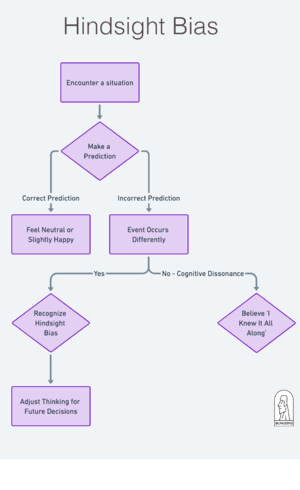Hindsight Bias
Hindsight bias, also known as the "I-knew-it-all-along" phenomenon, is a cognitive bias that refers to the tendency of people to believe, after an event has occurred, that they would have predicted or expected the outcome of that event. For instance, when people are asked to remember a former prediction after having received feedback on the outcome, their recollection tends to approach the feedback answer[1].
In other words, hindsight bias is the tendency to overestimate one's ability to have predicted an event after the outcome is already known. People tend to reconstruct their memory of past events based on what they know now, rather than what they knew at the time of the event. This can lead to a distorted perception of the accuracy of one's predictions and judgments.
Hindsight bias can be problematic because it can lead people to believe that events were more predictable than they actually were. This can result in overconfidence in decision-making and can make it difficult to learn from past mistakes.
References
- ↑ Hindsight: Biased judgments of past events after the outcomes are known. Hawkins, S. A., & Hastie, R. (1990). Psychological Bulletin, 107(3), 311–327. https://doi.org/10.1037/0033-2909.107.3.311

